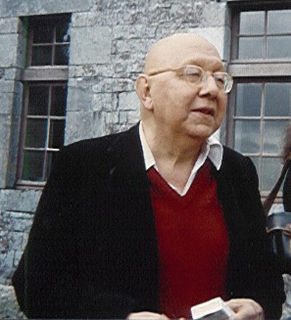A Quote by Marine Le Pen
Multicultural societies are multi-conflict societies.
Quote Topics
Related Quotes
I believe, whether it is the United States or Europe, they will all end up as multicultural societies. So India's this great experiment of a billion people of such great diverse persuasion, working together, seeking their salvation in the framework of a democracy. I believe it will have some lessons for all the multicultural societies.
What I think it's important to recognize in today's world is that all of our societies are multiethnic, multi-religious and multicultural. And that is a positive thing. That's a richness, and also strength. But we also have to recognize that, for those societies to be harmonious, there is a lot of the investment that needs to be made in social cohesion and inclusivity. But the important thing to recognize, and particularly Europe, most of the terrorist attacks are not done by people that came from the outside. They are homegrown.
In a cross-cultural study of 173 societies (by Herbert Barry and L. M. Paxson of the University of Pittsburgh) 76 societies typically had mother and infant sharing a bed; in 42 societies they shared a room but not a bed; and in the remaining 55 societies they shared a room with a bed unspecified. There were no societies in which infants routinely slept in a separate room.
We see that there are two different kinds of...societies: (a) parasitic societies and (b) producing societies. The former are those which live from hunting, fishing, or merely gleaning. By their economic activities they do not increase, but rather decrease, the amount of wealth in the world. The second kind of societies, producing societies, live by agricultural and pastoral activities. By these activities they seek to increase the amount of wealth in the world.
While all societies make their own imaginaries (institutions, laws, traditions, beliefs and behaviors), autonomous societies are those that their members are aware of this fact, and explicitly self-institute (????-?????????). In contrast, the members of heteronomous societies attribute their imaginaries to some extra-social authority (i.e. God, ancestors, historical necessity)
Free societies, which allow differences to speak and be heard, and live by intermarriage, commerce, and free migration, and democratic societies, which convert enemies into adversaries and reconcile differences without resort to violence, are societies in which the genocidal temptation is unlikely and even inconceivable.






























